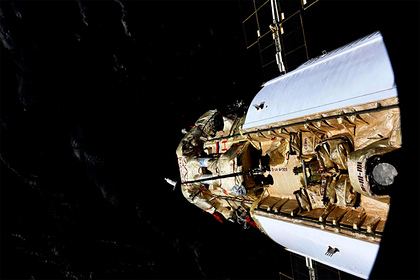After being launched into near-Earth orbit, the Russian multifunctional laboratory module (MLM) "Nauka" faced a massive system failure that threatens to lead to a serious emergency situation. [...] A source in the rocket and space industry told RIA Novosti about the critical situation with MLM.
According to him, the solution of all the problems of "Science" required a revision of its flight task and the creation of an emergency working group, including the best experts in the industry, who almost continuously monitored the situation for eight days.
"The main problems of the first two days of the flight of the Nauka module were: the failure of the flight program and the operation of one of the fuel valves, the problems of transmitting a command package to the board from ground — based measuring complexes, the lack of a signal from two infrared vertical sensors and from one of the two star sensors," the source said.
The source added that " the head of the main operational group of the department, Vladimir Solovyov, immediately reported on the critical situation to the general director of the state corporation Roscosmos, the chairman of the state commission for the launch of the module, Dmitry Rogozin." "Since that moment, the flight control of the module has passed into the hands of the state commission," the source said.
In August, NASA reported that the unplanned activation of the MLM engines after its accession to the Russian segment of the International Space Station (ISS) led to a change in the general orientation in space of the latter by 540 degrees (one and a half full turns).
In July, RIA Novosti, referring to the cosmonauts ' negotiations with the Mission Control Center (MCC), reported that the engines of the "Science" docked to the ISS had started working unplanned. The MLM docked to the ISS in the same month. On it, Nauka took the place of the Pirs module, which was undocked from the Russian segment of the station with the help of the Progress MS-16 cargo ship .
Ivan Potapov

